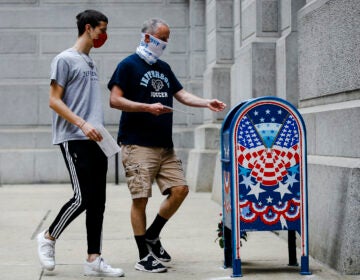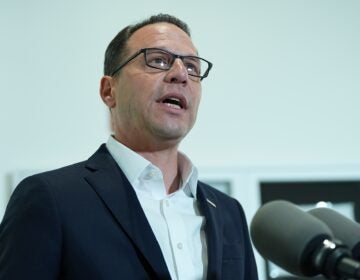Pennsylvania’s minimum wage is no longer a living wage. Here’s where Shapiro, Mastriano stand on raising it
Pennsylvania’s minimum wage has been stuck at $7.25 for 13 years. Josh Shapiro wants to raise it. Doug Mastriano opposes any changes.

(Commonwealth Media Services)
Ask us: As Election Day draws near, what questions do you have?
Inflation might be grabbing the major headlines, but stagnant wages are certainly deserving of attention.
Once upon a time, Pennsylvania was ahead of the curve on raising the minimum wage. In 2006, then-Gov. Ed Rendell signed legislation that would raise the minimum wage in Pennsylvania to $7.15 per hour — higher than the federal minimum wage.
Since then, Pennsylvania’s minimum wage has fallen behind. The commonwealth is one of 20 states that hasn’t raised the 13-year-old federal minimum wage of $7.25. Gov. Tom Wolf’s proposals to raise the minimum wage have repeatedly been ignored by the Republican-controlled state legislature.
With inflation at a 40-year high, the issue of stagnant wages has even more urgency. In the race for governor, Democrat Josh Shapiro and Republican Doug Mastriano have opposing views on whether the state should change its minimum wage.
In an interview with WHYY News, Shapiro, the state attorney general, said that growing an economy requires strengthening and investing in the workforce.
“We need to raise the minimum wage to at least $15 an hour — period. Then we need to make sure that we’re giving people the skills necessary to do the jobs of today and tomorrow,” Shapiro said.
Mastriano did not respond to a request for an interview. As a state senator, Mastriano voted against amending the Minimum Wage Act of 1968 to raise the state’s minimum wage to $9.50 in 2019.
In a 2019 interview with News Talk 103.7FM announcing his bid for state senate, Mastriano said, “let the free market decide how much is going to be paid and not the government.”
Shapiro on investing in Pa.’s workforce and their rights
In addition to raising the minimum wage, Shapiro believes that there needs to be a focus on workforce development.
“I think that process needs to start in our high schools. I want to bring vo-tech back to our high schools and give students the opportunity to learn a trade if they so choose. If they want to learn to be a welder, an electrician, let’s give them the ability to do that,” Shapiro said.
He believes that in order to grow the workforce, Pennsylvania should invest more in apprenticeship programs.
Shapiro wants easier pathways for people to enter these programs.
“We know, of course, that anyone who goes through an apprenticeship program here in Pennsylvania earns 30% more than wages over the course of their careers,” Shapiro said.
According to the state Department of Labor and Industry, 94% of apprentices who complete a program retain employment. Their average annual salary is $70,000.
Shapiro believes that by funding projects to address the state’s aging infrastructure, Pennsylvania can generate thousands of union jobs. His campaign has also said that if elected governor, he would do more to protect workers’ rights and strengthen misclassification laws.
Pennsylvania’s Joint Task Force on Misclassification of Employees released its annual report in March, which found that 389,000 workers are misclassified across the state annually, meaning workers missed out on key rights.

Your go-to election coverage
WHYY is your source for fact-based, in-depth journalism and information. As a nonprofit organization, we rely on financial support from readers like you. Please give today.







